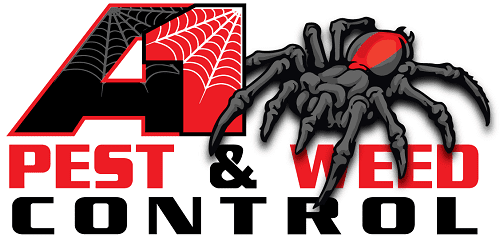Just like other major cities, Melbourne faces its fair share of pest-related challenges. Whether it’s commercial buildings, residential properties, or industrial sites, pests can be a nuisance. That’s where pest control audits come into play. These audits are vital in identifying potential pest problems, assessing current infestations, and implementing effective strategies to prevent future issues. Concerning maintaining a clean and pest-free environment in Melbourne, pest control audits are crucial.
Key Takeaways:
- Regular Inspections: Pest control audits in Melbourne stress the importance of regular inspections to identify pest problems early on.
- Compliance with Regulations: It is crucial for businesses to ensure that they comply with all pest control regulations to avoid hefty fines and maintain a good reputation.
- Integrated Pest Management: Implementing an integrated pest management plan can help businesses address pest issues in a sustainable and effective manner.
- Professional Solutions: Engaging professional pest control services can provide businesses with tailored solutions to their specific pest problems.
- Preventative Measures: Taking proactive measures such as sealing entry points and maintaining cleanliness can help in preventing future pest infestations.
Understanding Pest Control Audits
There’s nothing more important in maintaining a clean and safe environment for your business than understanding pest control audits. These audits are vital in ensuring that your commercial space remains free from any unwanted intruders that can cause harm or damage to your property.
Definition of a Pest Control Audit
On a basic level, a pest control audit is a thorough inspection of your premises to assess any current or potential pest issues. This process involves trained professionals who will identify any pests present, evaluate the extent of the infestation, and recommend appropriate measures to eliminate the problem effectively.
The Importance of Regular Audits for Businesses
For businesses, the importance of regular pest control audits cannot be overstated. These audits not only help in preventing pest infestations but also play a crucial role in maintaining a positive reputation for your company. By conducting regular audits, you demonstrate your commitment to providing a safe and hygienic environment for your employees and customers, which can significantly impact your business’s success.
It is vital to understand that pests can pose serious risks, from damaging property to causing health hazards. By proactively scheduling regular pest control audits, you can stay ahead of any potential problems and ensure the continued success of your business.

Key Components of a Pest Control Audit
Inspection of Premises
Premises inspection is a critical component of a pest control audit. This involves a thorough examination of the entire property to identify existing pest infestations, potential entry points, and areas that are prone to pest activity. Inspectors will look for signs of pest presence such as droppings, nesting materials, gnaw marks, and other indicators to determine the extent of the infestation.
Review of Pest Management Documentation
An audit of pest management documentation is crucial to assess the effectiveness of the current pest control measures in place. This includes reviewing records of previous pest treatments, pest monitoring reports, and any sanitation and maintenance practices that may impact pest control. By examining documentation, auditors can identify trends in pest activity, areas of improvement, and compliance with regulations.
For instance, auditors may check if pest control treatments are being conducted at the recommended frequency and if corrective actions are taken promptly in response to pest sightings. It also allows auditors to verify if the pest control company is following integrated pest management practices tailored to the specific needs of the property.
Preparing for a Pest Control Audit
Internal Review and Documentation
Audit your current pest management protocols and ensure all documentation is up to date. This includes pest control logs, sanitation reports, and any pest sightings. Conduct a thorough inspection of your facility to identify any areas of concern that may need to be addressed before the audit.
Staff Training and Awareness
Documentation of staff training sessions is necessary to demonstrate that your employees are knowledgeable about the pest control measures in place. Make sure all staff members are aware of the importance of maintaining a clean and pest-free environment. Regular training sessions should cover how to identify common pests, the proper way to report pest sightings, and protocols for pest control treatment.
Staff should be trained to recognize signs of pest activity and know the proper steps to take in response. It is crucial to create a culture of vigilance among your team to ensure that everyone is actively involved in pest prevention efforts.
Preparing
The Pest Control Audit Process
Initial Consultation
With any pest control audit in Melbourne, it all begins with an initial consultation. During this stage, the auditor will discuss with the client the specific requirements, concerns, and expectations regarding pest control on their premises. This is a crucial step to ensure that the audit is tailored to the client’s needs and focuses on the areas of most concern.
On-Site Assessment
On-site assessment is a critical part of the pest control audit process. During this phase, the auditor will visit the client’s premises to conduct a thorough inspection. They will identify any existing pest problems, assess the environment, and look for potential entry points or conditions that may attract pests.
The on-site assessment provides the auditor with valuable information that will be used to develop a customized pest control plan for the client.
Identification and Risk Evaluation
Assessment of the identified pests and the risks they pose is a crucial aspect of the audit process. The auditor will determine the type of pests present, the extent of the infestation, and the potential risks to the property and occupants. This information is crucial for developing an effective pest control strategy that targets the specific pests and addresses the risks they present.
Identification and risk evaluation help in determining the appropriate treatments and preventive measures that need to be implemented to address the pest issues effectively.
Audit Reporting
Control of reporting plays a vital role in the pest control audit process. After completing the audit, the auditor will provide a detailed report to the client. This report will outline the findings of the audit, including the identified pests, the risks they pose, and recommendations for pest control measures. The report will also include a customized pest management plan tailored to the client’s specific needs and requirements.
Another important aspect of audit reporting is the follow-up process. The auditor may schedule follow-up inspections to monitor the effectiveness of the pest control measures implemented and make any necessary adjustments to ensure ongoing protection against pests.
Common Findings and Recommendations
Typical Pest Issues in Melbourne
For many properties in Melbourne, common pest issues include rodents, ants, cockroaches, and spiders. These pests can find their way into homes and businesses through small cracks and crevices, posing a threat to both health and property. Rodents are particularly problematic as they can carry diseases and cause damage by gnawing on wires and structures.
Recommendations for Prevention and Control
One key recommendation for preventing pest infestations is to maintain a clean and clutter-free environment. This means regularly cleaning up crumbs, sealing food in airtight containers, and disposing of garbage properly. Additionally, sealing any cracks or openings in walls and floors can help prevent pests from entering the premises.
For instance, installing door sweeps and caulking around windows can help keep pests out. Regular inspections and monitoring for signs of pest activity are also crucial for early detection and treatment.
Post-Audit Actions
On completion of a pest control audit in Melbourne, it is crucial to take the necessary steps to address any identified issues and ensure continued compliance with regulations. It is vital to refer to trusted resources like Pest and Compliance to help in implementing relevant audit recommendations.
Implementing Audit Recommendations
On receiving the audit report, it is vital to prioritize and implement the recommendations made by the auditor. This may involve taking corrective actions, such as repairing entry points, enhancing sanitation practices, or implementing pest monitoring systems. Regularly communicating with employees and providing necessary training will ensure that the recommended changes are effectively put in place.
Monitoring and Continuous Improvement
Continuous monitoring post-audit is vital to gauge the effectiveness of implemented recommendations and identify any recurrent pest issues. Regular inspections, trend analysis, and data tracking can help in spotting potential problems early on and taking proactive measures. By fostering a culture of vigilance and accountability, businesses can continually improve their pest management practices and stay compliant with regulations.
Continuous evaluation and refinement of pest control strategies are key to maintaining a pest-free environment in Melbourne. By incorporating feedback from audits, staying up to date with industry best practices, and using technology where applicable, businesses can achieve long-term success in pest management.
Regulatory Compliance and Industry Standards
National and State Regulations
With pest control audits in Melbourne, it is crucial to ensure compliance with both national and state regulations to maintain the health and safety of residents and the environment. These regulations govern the use of pesticides, safety protocols, waste disposal, and licensing requirements for pest control operators.
By adhering to national and state regulations, pest control companies in Melbourne demonstrate their commitment to upholding the law and protecting the well-being of their clients and the community at large. Regular audits help ensure that these regulations are being followed consistently and that any non-compliance issues are addressed promptly.
Adherence to Industry Best Practices
National industry standards for pest control in Australia are designed to promote effective pest management practices that are safe, environmentally friendly, and sustainable. By adhering to these best practices, pest control companies in Melbourne can ensure that they are providing high-quality services that meet the needs of their clients while minimizing the impact on the environment.
Practices such as integrated pest management, proper record-keeping, and ongoing staff training are important components of industry best practices in pest control. By implementing these practices, pest control companies can improve their efficiency, effectiveness, and overall service quality.
Conclusion
As a reminder, pest control audits in Melbourne are crucial in ensuring the safety and health of your property and its occupants. By conducting regular audits, you can identify potential pest issues early on and take proactive measures to prevent infestations. In addition, complying with local regulations and standards for pest control can help you avoid costly fines and protect your reputation.
Note, that prevention is key when it comes to pest control. By partnering with a professional pest control company and scheduling regular audits, you can create a safe and pest-free environment for your property. Don’t wait until pests become a serious problem – take action now to protect your investment and well-being.
FAQ
Q: What is a pest control audit?
A: A pest control audit is a comprehensive inspection of a property to assess the extent of pest infestation, identify pest species, and evaluate the effectiveness of current pest control measures.
Q: Why is a pest control audit important?
A: A pest control audit is important to ensure that pests are effectively controlled and to prevent future infestations. It helps in identifying potential risks and vulnerabilities in the property that may attract pests.
Q: How often should pest control audits be conducted in Melbourne?
A: Pest control audits should be conducted at regular intervals, ideally every 6 to 12 months, to ensure the ongoing effectiveness of pest control measures and to address any emerging pest issues promptly.
Q: What should I expect during a pest control audit in Melbourne?
A: During a pest control audit, a licensed pest control technician will inspect the property, identify pest hotspots, assess the level of infestation, identify pest entry points, and provide recommendations for pest control and prevention.
Q: Who should conduct a pest control audit in Melbourne?
A: Pest control audits should be conducted by licensed and experienced pest control professionals in Melbourne who have the knowledge, skills, and tools to accurately assess pest infestations and provide effective pest control solutions.

